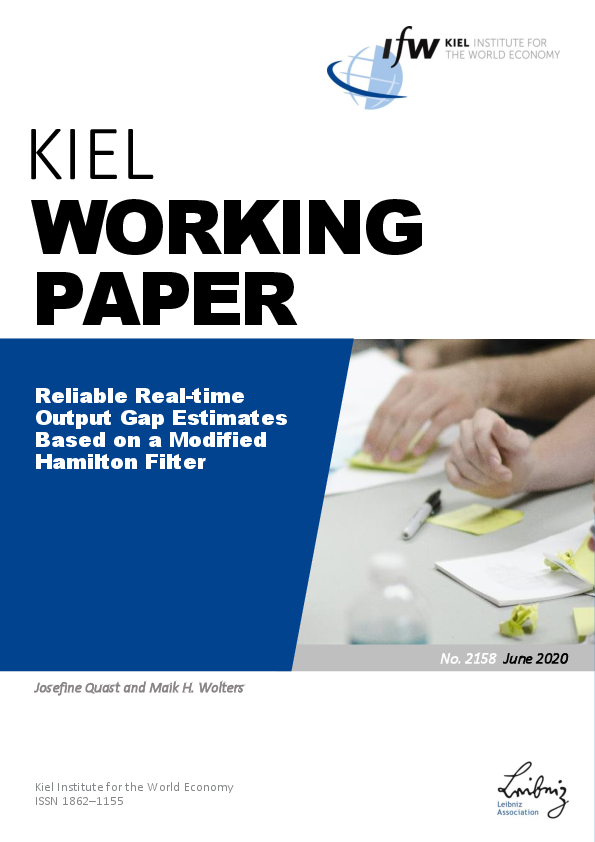Working Paper
Reliable Real-time Output Gap Estimates Based on a Modified Hamilton Filter
Authors
Publication Date
JEL Classification
Key Words
Related Topics
Business Cycle
We propose a simple modification of Hamilton’s (2018) time series filter that yields reliable and economically meaningful real-time output gap estimates. The original filter relies on 8 quarter ahead forecast errors of a simple autoregression of real GDP. While this approach yields a cyclical component that is hardly revised with new incoming data due to the one-sided filtering approach, it does not cover typical business cycle frequencies evenly, but mutes short and amplifies medium length cycles. Further, as the estimated trend contains high frequency noise, it can hardly be interpreted as potential GDP. A simple modification based on the mean of 4 to 12 quarter ahead forecast errors shares the favorable real-time properties of the Hamilton filter, but leads to a much better coverage of typical business cycle frequencies and a smooth estimated trend. Based on output growth and inflation forecasts and a comparison to revised output gap estimates from policy institutions, we find that real-time output gaps based on the modified and the original Hamilton filter are economically much more meaningful measures of the business cycle than those based on other simple statistical trend-cycle decomposition techniques, such as the HP or bandpass filter, and should thus be used preferably.




